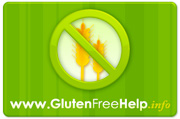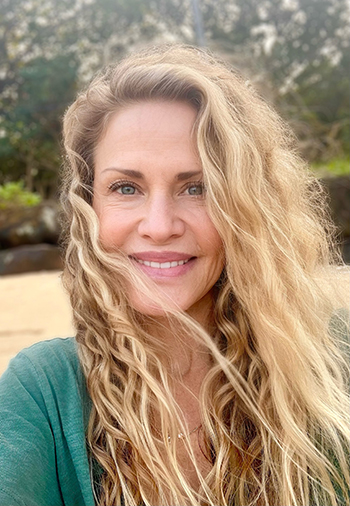Here is a very interesting article from Sasha Cagen:
Imagine there is a food additive that slowly poisons you and can even kill you. Now imagine you have no way of knowing whether it is in your foods. Three million American celiacs and I find ourselves in this situation. We have been patiently waiting for the FDA to pass a gluten labeling law while Brazil, the European Union, and Australia acted years ago.
On May 4, activists will be baking a 12-foot gluten-free cake in Washington, DC to get the FDA and Congress to take long-overdue action on this public health crisis. It’s high time the U.S. caught up with the rest of the world.
I’m a diagnosed celiac. My doctor’s orders are to strictly avoid gluten for the rest of my life. I cannot eat even a speck (say, a bread crumb). Celiacs who keep eating gluten have a sixfold higher risk of developing cancer and increased risks of osteoporosis and other autoimmune conditions. Gluten causes a celiac’s intestine to attack itself and destroy the villi, which are tiny hairs that reach out to absorb food. Over time, celiacs don’t absorb the benefits of food.
Gluten is a protein found in wheat, barley, rye and oats. The obvious no-no list includes beer, bread, cake, cookies, pies, and soy sauce. But it doesn’t stop there. Manufacturers may use gluten as a thickening agent in surprising foods like ice cream and salad dressing.
Food manufacturers are not required to disclose whether a product contains gluten.
The solution is simple.
A rule that would require manufacturers to tell us if a product contains gluten would eliminate thousands of accidental “glutenings.”
My Story: Fatigue and Anemia Point to Celiac
Last fall, I felt so depleted I could barely type an email. First my blood tests revealed iron-deficient anemia. Additional blood tests — and then a stomach biopsy — confirmed that I have celiac too. Celiac explained the anemia. (I wasn’t getting enough iron because my stomach couldn’t properly absorb food.)
I was relieved to get a diagnosis with a dietary solution. Being diagnosed as celiac is a huge life change that takes time to fully absorb. It’s changing how I cook, socialize, and travel. My energy is back. I believe I may have more energy than ever before once my body is fully healed. It’s boggling to think that I have been eating food for (who knows how long) but not receiving full nutritional benefit from it.
But it’s making me crazy to live in a country that is so far behind the curve on gluten safety. Every time I go to the supermarket I find myself questioning whether a product may be safe. I have already accidentally “glutenized” myself several times; when I get glutenized, I turn into a depleted zombie.
Three million (or one in 133 Americans) are celiac, and 18 million are gluten-intolerant. That’s 7% of the population. How can anyone host a dinner party or Thanksgiving without reliable product labels? Will my guests be able to eat safely? Without labeling, who knows?
Europe, Brazil, Argentina, Canada, and Australia all have labeling laws that standardize what “gluten-free” labeling means so consumers can trust that a food is safe to eat.
American food producers can slap “gluten-free” on a label and there is no process for verifying that it’s true or the food is safe. And what does “gluten-free” mean? Other nations have set standards for a safe amount. (It’s technically impossible to create many products with zero gluten.)
In the absence of a definition, each manufacturer decides what it thinks is safe. Some vendors are more deliberately deceptive. In North Carolina, a man took regular bread and labeled it gluten-free, sickening dozens.
There are many hidden sources of gluten. Last week my friend Agnes invited me over and sweetly offered me a plate of gluten-free food: dates, goat cheese, with roasted nuts on top. But there was no label on the nuts and sometimes nuts are roasted with a seasoning mixture containing gluten. Ditto for any product with “natural flavorings” in the ingredients list. Sometimes they contain gluten, sometimes not. There are so many gotcha moments for a celiac: Oh, %@#$@#! That’s why I can’t get out of bed!
What’s the Hold-Up?
Congress charged the FDA in August 2006 with the responsibility of issuing a rule defining “gluten-free” for food labeling. Congress required the FDA to issue a final rule no later than August 2008. Nearly three years later, the FDA still has not acted.
By contrast, Brazil passed a law requiring that food manufacturers disclose whether a product contains gluten in 1992.
The FDA makes the excuse that it has spent years reviewing scientific debate what gluten-free means. By now Europe and many governments elsewhere have decided the limit is 20 ppm (parts per million).
The longer the FDA lags, food producers put gluten-free on labels and benefit from sales without investing in procedures that ensure safety.
A new group called 1 in 133 is organizing a gluten-free summit May 4 in Washington, DC to push the FDA into action during Celiac Awareness Month. The summit is the brainchild of two gluten-free activists, John Forberger, 30, a triathlete who has been to the hospital 17 times due to accidental glutening, and Jules Shepard, 40, author of The First Year: Celiac Disease and Living Gluten-Free. John and Jules originally met via Twitter and have done all their organizing via social media and phone.
Not Just Any gluten Labeling Law, a Good One
As currently proposed, the FDA would establish a scientific definition for “gluten-free” but would still be entirely voluntary for producers of food to use this designation and there would be no certification process.
Shepard says it may better to go back to Congress before the FDA acts to push them to issue a more meaningful rule requiring manufacturers to disclose if gluten is present in a product (as they are required to do for allergens like peanuts, wheat, and shellfish according to the Food Allergen Labeling and Consumer Protection Act of 2004). Shepard and her fellow advocates are organizing briefings with members of Congress for May 4.
One possible solution is getting barley and rye added to FALCPA so that all sources of gluten are included.
“If you were to poll people to ask people what they think this FDA labeling provision means,” says Shepard, “most people would think it would create a labeling law similar to what we have for allergens. I don’t think most people understand we are just setting a standard for ‘gluten-free’ that manufacturers can choose to use or not.”
“Every year new data comes out showing that celiac, gluten intolerance, and other medical conditions requiring a gluten-free diet are more widespread than previously believed. That alone is a reason to go back to Congress,” says Shepard.
“This is a public health issue that is going to get a lot more attention as numbers are recognized. We are hoping our initiative will spur on Congress to take such action, so that the end result will not just be some kind of gluten-free labeling regulations, but rather, good gluten-free labeling regulations.”
To show your support for gluten labeling laws!
Tina Turbin
www.GlutenFreeHelp.Info
k.m.
From our home to yours, Tina Turbin
If you have any questions or suggestions just email me at Info (at) TinaTurbin (dot) com.








